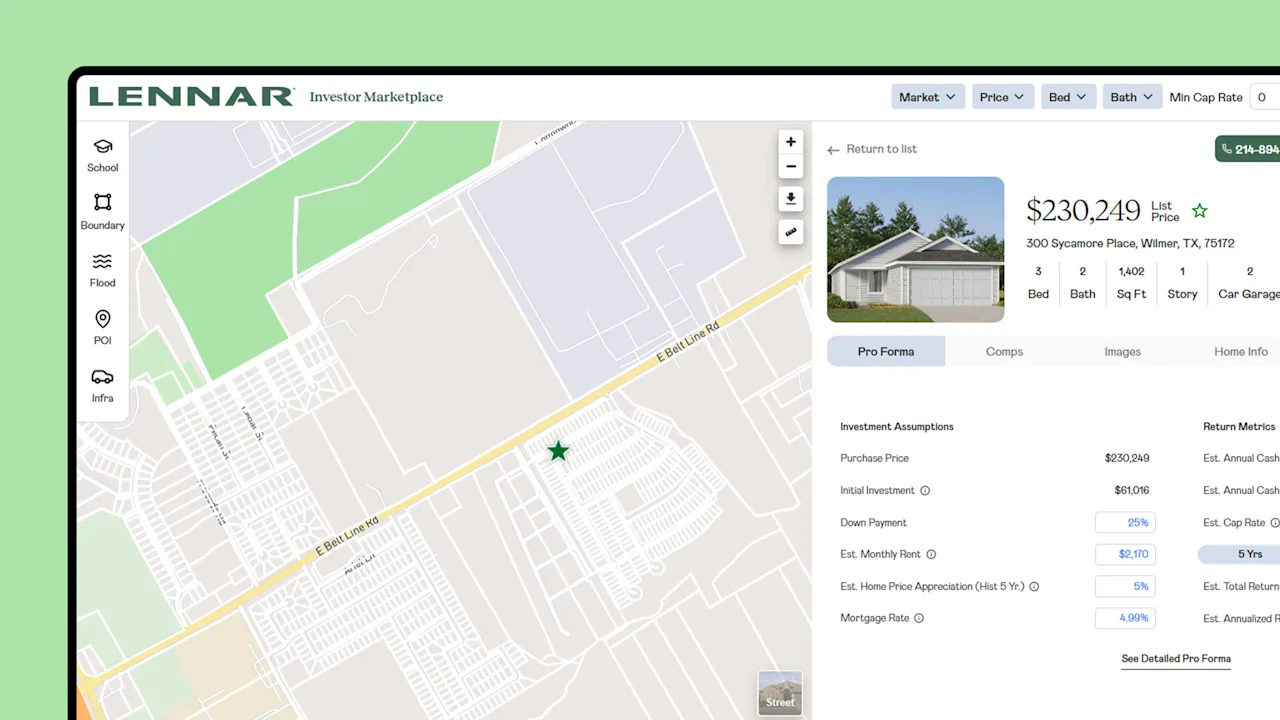7 Essential Steps to Start Your Sole Proprietorship

Starting a sole proprietorship can be straightforward if you follow the right steps. First, you’ll need to choose a business name that resonates with your brand. After that, registering your DBA name is essential to establish your identity. You’ll additionally need to secure the necessary licenses and permits for your specific industry. These initial steps set the foundation for your business, but there’s more to take into account, such as obtaining an EIN and managing your finances effectively.
Key Takeaways

- Choose a unique and memorable business name that reflects your values and avoid misleading connotations.
- Register your business name by completing an Assumed Name Certificate at your county clerk’s office.
- Obtain necessary licenses and permits specific to your business type and local regulations.
- Apply for an Employer Identification Number (EIN) online through the IRS for tax identification.
- Open a business bank account to separate personal and business finances for accurate tracking and tax reporting.
Choose a Business Name

Choosing a business name is a crucial step in starting your sole proprietorship, as it will reflect your brand and influence how customers perceive your services.
To choose a business name, make sure it’s unique and not misleading about what you offer, as this prevents consumer confusion and legal issues. Conduct thorough searches in government databases and online to verify that your desired name isn’t already in use or trademarked.
A strong name should embody your business values, be memorable, and easy to pronounce, enhancing brand recognition.
Register Your Business DBA Name

Registering your business DBA (Doing Business As) name is an essential step that allows you to operate under a name distinct from your legal name, which can improve your business’s identity.
To register a sole proprietorship in Texas, you’ll need to complete an Assumed Name Certificate at the county clerk’s office where your business is located. Filing fees usually cost under $20, making this an affordable option for small business owners.
Before you proceed, conduct a name availability search to verify your chosen DBA name is unique and doesn’t infringe on existing trademarks.
Processing times can vary by county; for example, McLennan County may complete the process in about two minutes, enabling you to start your business quickly.
Obtain Necessary Licenses and Permits

Before you launch your sole proprietorship, it’s crucial to research and obtain all the necessary licenses and permits specific to your business type. You might be wondering, “Do I need a business license for my sole proprietorship?” The answer is likely yes. Here’s a quick overview of common licenses and permits:
| License/Permit Type | Typical Cost | Purpose |
|---|---|---|
| General Business License | $50 – $100 | Required by local government |
| Health Permit | $25 and up | Necessary for food businesses |
| Zoning Permit | Varies | Guarantees compliance with local zoning laws |
| Sales Tax Permit | Varies by state | Required for sales tax collection |
| Professional Licenses | Varies | Required for regulated professions |
Contact local authorities to confirm specific requirements, as non-compliance can lead to fines or business closure.
Apply for an Employer Identification Number (EIN)

Applying for an Employer Identification Number (EIN) is a significant step in establishing your sole proprietorship, particularly in the event you plan to hire employees.
An EIN, issued by the IRS, serves as your business’s unique identifier for tax purposes, similar to a Social Security number for individuals.
If you want to apply for an Employer Identification Number (EIN), you can do so online through the IRS website for immediate issuance, or you can submit Form SS-4 by mail or fax—there’s no application fee.
Even though you don’t have employees, obtaining an EIN can help you separate personal and business finances, which is fundamental for clear financial records and opening a business bank account.
This step is critical in learning how to become a sole proprietor.
Register for State Taxes

Once you’ve secured your Employer Identification Number (EIN), the next step is to register for state taxes, which is a key requirement for operating legally in Texas Comptroller’s website to understand your tax obligations, including sales and employer taxes. If your sole proprietorship Illinois sells taxable goods or services, you’ll need to obtain a sales tax permit by providing your business details during registration. Be aware of additional state taxes, such as franchise tax and employer taxes, that may apply. Keep accurate records of your sales, expenses, and tax payments to guarantee compliance and avoid penalties.
| Tax Type | Description |
|---|---|
| Sales Tax | Required for selling taxable goods/services |
| Franchise Tax | Applies based on business activities |
| Employer Taxes | Required if you have employees |
Get Business Insurance
Acquiring business insurance is a vital step for sole proprietors who want to safeguard their personal assets from potential business liabilities. As a sole proprietor, you’re personally responsible for all debts and obligations incurred by your business, making insurance important.
General liability insurance is a common choice, as it covers claims of bodily injury or property damage, assisting with legal fees and settlements. Costs can vary based on your industry, coverage limits, and location, typically ranging from $400 to $1,500 annually.
Some insurers additionally offer specialized policies customized to specific professions, like professional liability insurance for consultants. Regularly reviewing your coverage as your business grows is advisable to guarantee adequate protection against emerging risks during the process of learning how to start a sole proprietorship.
Open a Business Bank Account

Opening a business bank account is a smart move for managing your finances as a sole proprietor.
It helps you separate personal and business expenses, which simplifies tax reporting and expense tracking.
Plus, having a dedicated account can improve your financial management and protect your personal assets from business liabilities.
Separate Personal Finances
Establishing a business bank account is a fundamental step for any sole proprietor looking to separate personal finances from business activities. This separation is essential for accurate tax reporting and financial management.
Here are some benefits of having a dedicated business account:
- Simplifies tracking of business expenses and income.
- Makes preparing for tax season easier and reduces audit risks.
- Provides access to specialized banking features for small businesses.
- Helps establish business credit for future financing options.
To open a business bank account, you typically need to provide your Employer Identification Number (EIN), any “Doing Business As” (DBA) registration, and personal identification.
Enhance Financial Management
Maintaining a clear distinction between personal and business finances not just simplifies your overall financial management but also improves your credibility as a sole proprietor.
One important step in learning how to get a sole proprietorship is opening a dedicated business bank account. This helps separate your personal and business finances, making tax preparation and expense tracking much easier. When you use an assumed name and an Employer Identification Number (EIN) with your bank, you boost your professional identity.
Many banks offer features like online banking, merchant services, and business credit cards, which can support your growth. Furthermore, a business account helps establish business credit, vital for future financing opportunities, such as loans or credit lines.
Frequently Asked Questions

What Are the Steps to Starting a Sole Proprietorship?
To start your sole proprietorship, first choose a unique business name. If it differs from your legal name, file a DBA with your county clerk.
Next, obtain necessary permits and licenses relevant to your business type and location. If you plan to hire, apply for an EIN from the IRS.
Register for state taxes and consider opening a dedicated business bank account for financial management.
Finally, think about getting general liability insurance for protection.
What Are the 5 Key Features of a Sole Proprietorship?
A sole proprietorship has several key features.
First, it’s the simplest business structure, requiring no formal registration. You have complete control over your business decisions, allowing for flexible management.
There’s no legal distinction between you and your business, meaning you’re personally liable for all debts. Profits are yours to keep, reported as personal income, simplifying tax processes.
Furthermore, this structure involves minimal regulatory requirements, making it easier to maintain without ongoing filings.
Is It Better to Be LLC or Sole Proprietor?
Choosing between an LLC and a sole proprietorship depends on your priorities.
If you prefer simplicity and lower setup costs, a sole proprietorship might suit you.
Nonetheless, if you want to protect personal assets from business liabilities, an LLC is better.
An LLC additionally offers flexibility in taxation and can continue after your death.
In the end, evaluate your business goals, potential risks, and financial situation to make the best choice for your circumstances.
How Much Does It Cost to Start a Sole Proprietorship?
Starting a sole proprietorship typically costs between $20 and $200.
You’ll primarily pay for a DBA filing, ranging from $20 to $50, and possibly a general business license costing $50 to $100.
Depending on your industry, specific permits might add $25 to several hundred dollars.
Don’t forget to budget for business insurance and other expenses like marketing and supplies, which can additionally impact your startup costs considerably.
Conclusion

Starting your sole proprietorship involves several key steps, each crucial for a successful launch. By choosing a fitting business name, registering your DBA, obtaining necessary licenses, and applying for an EIN, you lay a solid foundation. Furthermore, registering for state taxes, securing business insurance, and opening a dedicated bank account will help you manage your finances more effectively. Following these steps will not just guarantee compliance but likewise position your business for growth and sustainability in the long run.
Image Via Envato
This article, "7 Essential Steps to Start Your Sole Proprietorship" was first published on Small Business Trends
What's Your Reaction?
 Like
0
Like
0
 Dislike
0
Dislike
0
 Love
0
Love
0
 Funny
0
Funny
0
 Angry
0
Angry
0
 Sad
0
Sad
0
 Wow
0
Wow
0




























































































